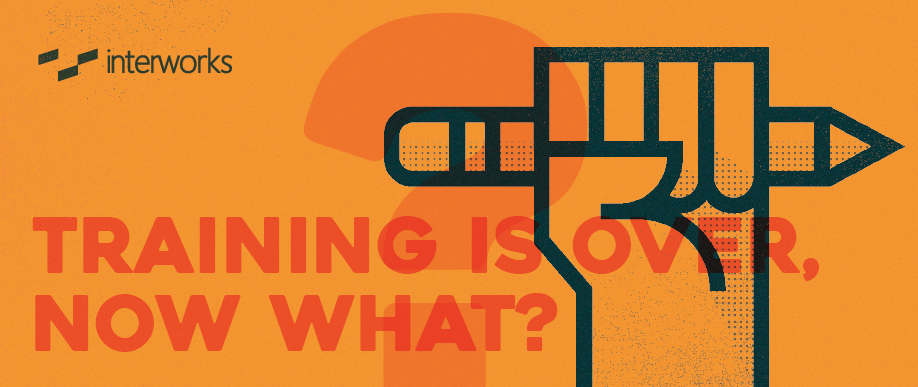
You’ve just completed the Desktop 1: Fundamentals course. Maybe it was in a classroom. Maybe it was through an interactive online class. You might be asking yourself – now what? I’ve got all these tips and ideas about Tableau Desktop in my head, and I’m worried that I’ve been overloaded. How do I keep these skills I’ve learned? How do I get even better?
Well, well, you’ve come to the right place. Our Tableau consultants come from many different backgrounds and proficiencies. Our training team has a lot of experience in taking Tableau noobs and making them into rock stars.
Here’s what you can do now that you’ve completed training to continue the journey towards wicked nunchuck skills … er, I mean … Tableau mastery.
Start Playing
Skills that you learn in the classroom that you don’t use on the playing field will quickly fade, so start using your training immediately. Even if your data sources aren’t ready or you don’t have a specific goal in mind, just start playing in Tableau. Experiment and try new things. Find data sources off of the Internet and put the ideas that were introduced in Desktop 1: Fundamentals into practice until they are second nature.
Look for other dashboards and try to reproduce them. Ask for spreadsheets that your coworkers have to maintain and see how you make them more dynamic and effective by trying different chart types and presentations.
The more you put into Tableau, the better you’ll be.
Become the Evangelist
The old adage that the best way to learn something is to teach it is absolutely true. Repetition is the key to excellence. Practice makes perfect. Once you’ve completed some level of Tableau training, the best way to reinforce all of the material that you covered in your Desktop 1: Fundamentals course is to become a Tableau evangelist in your own company.
One of the recommendations that the Tableau Drive methodology suggests for expanding user adoption and changing the corporate culture to one that embraces analytics is to hold “office hours.” This time is an open door policy for the local Tableau experts to take questions from newer users, review dashboards and mentor.
The best part of it for you is that you will be asked questions that you don’t the answer to, and that challenge of finding a piece of knowledge will make you stronger in your own skillset.
The Community
The revolution that was started with Tableau Software in putting business users into the driver’s seat for analytics is worldwide. As a result, Tableau has one of the most energized and passionate user bases in the industry. Tableau aficionados are on part with their devotion to Tableau as Photoshop enthusiasts, Mac users and WoW clans.
Now that you’re well versed in the basics of Tableau, get into the online community. A great way to continue to build proficiency and to learn is to make personal connections within the topic. You’ll find that more experienced users are quite generous in offering assistance and ideas for tough questions. In addition, you might find some questions posted that you’re now able to answer.
Making friendships in the community makes going to conventions and conferences all the more fun as you meet back up with other data nerds from across the country and even the world.
Tableau Public
Tableau Public is the art gallery for viz geeks. The interests on display in the dashboards is as varied as you can imagine – from fantasy football to movies to politics to video games and more. Much more. Looking at the crazy ideas from other Tableau users is highly addictive and quite humorous. Our own consultants have contributed mightily, so keep an eye for some of the names you might see on the InterWorks Team page or our blog.
Have fun with Tableau and start building dashboards that are challenging for yourself. If you’ve hit on something, post it to Tableau public for the rest of the community to enjoy. Not only could you make a name for yourself as creative and innovative dashboard master, but you’ll also get tips and tricks from Tableau rock stars.
More Training
Desktop 1: Fundamentals is the first class you should take in Tableau. It is dipping your toe into the waters to get enough proficiency and skill to start creating sound dashboards. The journey to becoming a true Tableau Jedi doesn’t end there. The next course is the Desktop II: Intermediate class. While it is shorter in duration, it is far more specific in scope.
In addition to more advanced courses, you can also ask your Tableau trainer to devise custom curriculum for the needs of you and your team. If your company is particularly interested in say calculated fields, you can have your trainer go into incredible detail on that particular subject. It’s a great way to build mastery on topics that are immediately applicable to your needs.
Get Training
Whether you need the Desktop I: Fundamentals course for you or your entire team, InterWorks has certified trainers that are widely recognized as the best in the business. We offer the full complement of Tableau training, including Desktop 1: Fundamentals, Desktop II: Intermediate, Server and even customized curriculum based on your requests and your needs.
Contact us today for more information on Tableau training.

